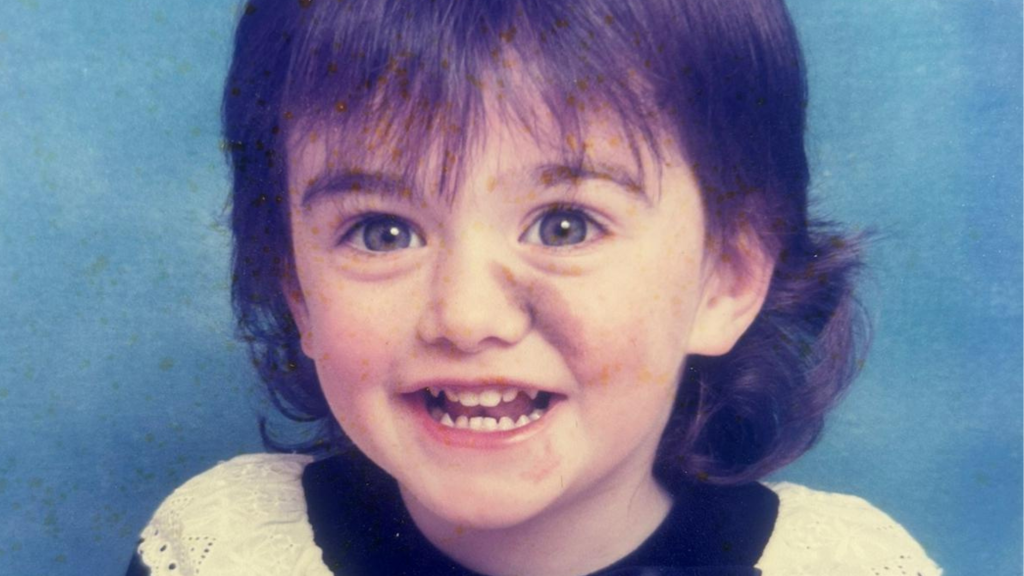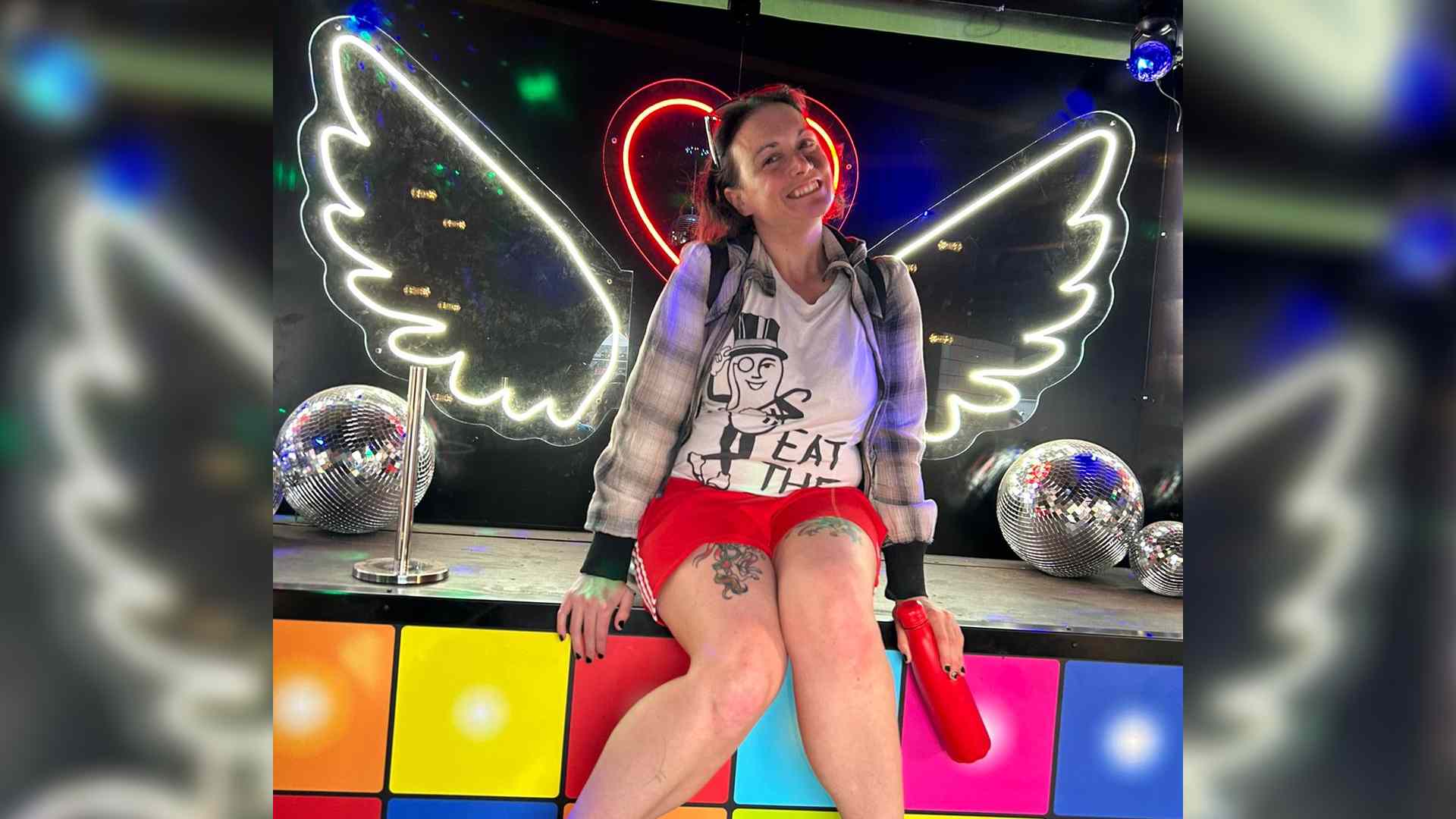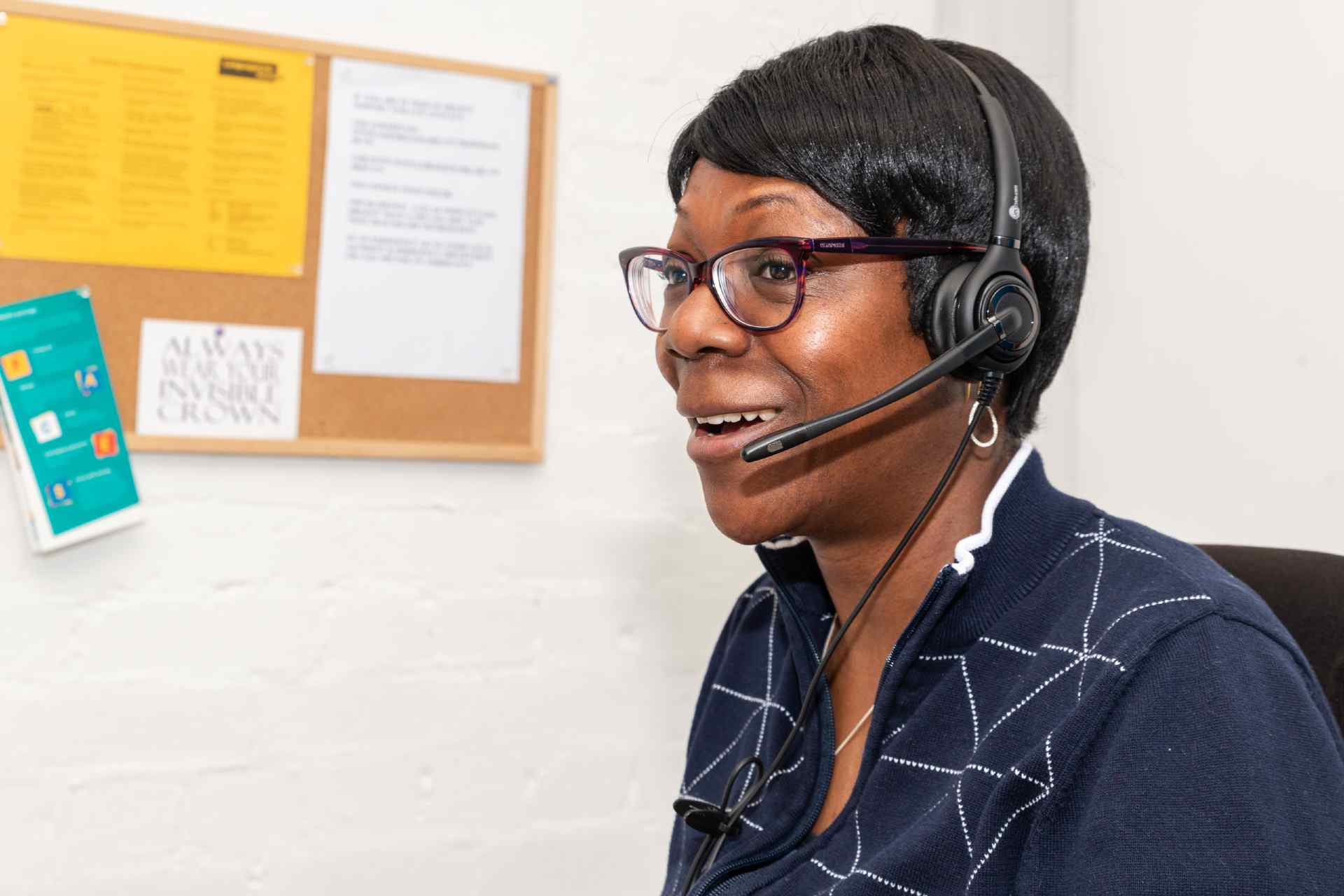Joining Changing Faces as a campaigner is one of the best decisions I ever made, but it took me over seven years to find the courage to engage with the charity.
I first came across Changing Faces in 2014. I remember sitting in front of my laptop one Saturday afternoon and researching my birthmark, a Congenital Melanocytic Nevus (CMN), which led me in turn to look around the internet for others who had a birthmark like mine. This was the first time I’d ever googled it; I was 26.
In the age of smartphones, it seems absurd that I never did the research prior to 2014. The only information I received about my birthmark was what my parents were told when I was born – “there’s no need to have it removed, it won’t affect her health, let her decide about surgery when she’s older” – and what I was later told as a teenager – a politer version of “we can only remove part of it, you’ll still look different, so what’s the point?”

Katie as a child
Growing up with a visible difference, I was desperate to look normal. That desperation led me to almost deny its existence; I hated talking about it and pretended it wasn’t there. This is part of the reason why I didn’t do any research, as if knowing more would empower it and force me to acknowledge that it was there. I once commissioned an artist to draw me, and I asked her to not include my birthmark. She quite rightly refused.
When I interviewed to be a Changing Faces campaigner, I didn’t think I was the right person for the gig. All that avoidance and denial had convinced me that I wasn’t worthy of the title. I wasn’t in and out of hospital as a child, nothing traumatic had happened to create my visible difference and it didn’t limit my ability to get anywhere in life. I definitely wasn’t inspirational.
But the truth is, I was desperate for help. By the time I turned 30 I was truly miserable, bitter that I looked different and exhausted by years of comments and stares. I was ashamed that I hadn’t adapted to looking different and I was embarrassed to be more insecure in my 30s than I was as a teenager.
The people that love me do so because of who I am, and I wouldn’t be this person without my CMN.
I didn’t think joining Changing Faces would make me better. Instead, I saw becoming a campaigner as a selfless activity – supporting others and raising awareness. But joining the charity finally made me realise what I needed. By not telling my story and denying its very existence, I’d pushed myself into a dark place and devalued my own lived experience. The comments and stares were nothing compared to the way my own attitude was hurting me.
I now know, 10 years on from that first day of research, that all the love and abundance in my life would not be here without my birthmark. It has been part of me from day one and its existence has shaped my life and made me the person I am today. The people that love me do so because of who I am, and I wouldn’t be this person without my CMN.
My only sadness now is that it took me so long to get here, but I feel incredibly lucky that I can now live a life so big, unrestricted by my own denial and imposter syndrome.
Tips for living with imposter syndrome:
Don’t silence yourself. Imposter syndrome is a form of silencing yourself. Your voice needs to be heard, that’s why you’re here on this earth. If you find you are telling yourself you are not [insert issue here] enough, imagine saying those words to somebody else. You wouldn’t dare!
You deserve everything you need. Many of us, especially women, find it so difficult to ask for what we need. Part of keeping ourselves silent is convincing ourselves that we aren’t worthy of what we want to ask for. Imposter syndrome comes from a lack of self-love. Make time in your life to recognise what is making you sad and seek a solution.
Comparison is the thief of joy. This line is often used when we see someone (supposedly) happier, richer or skinnier than us. But it can be used to convince ourselves that people are “worse off”, and therefore we must deny ourselves of something in response. Pretending I didn’t need help coping with my visible difference didn’t make anyone else better off. As well, assuming someone is “worse off” is illogical because you will never be familiar enough with their situation to make that judgement. And also, life is incomparable! You are just seeing it through your lens, so it’s on you to change your perceptions regardless of anyone else.
Imposter syndrome can be damaging long term. Three years ago, I was diagnosed with Stage 2 melanoma, the most dangerous form of skin cancer. Surgery was successful and I have since been, thankfully, cancer free. But it wasn’t until post-diagnosis that I found research to suggest people with CMNs are at greater risk of skin cancer. Everyone knows to cover your moles in suncream, but my ongoing denial of what I had meant I wasn’t always strict about protecting myself from the sun. I can’t say whether more thorough research on my part would’ve prevented a mole on my back turning cancerous, but I do think if you have a condition or a difference, you are responsible for taking care of yourself, and that means taking care of your difference as well.
You deserve to be acknowledged and accepted, don’t be the person who holds yourself back.

